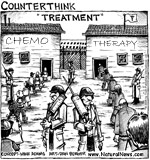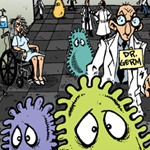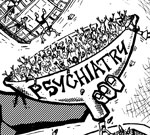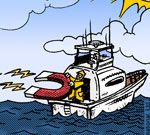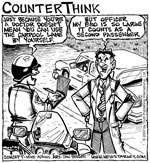Sleep Onset Insomnia - What to Do When You Just Can't Get to Sleep
| Share on Facebook | Share on Twitter | Share on Google+ |
Sleep onset insomnia occurs when a person wants to sleep but can't fall asleep. Sleep onset insomnia may be caused by jet lag, which usually resolves within 2 days to 2 weeks, or by a variety of other conditions. When the problem is jet lag, or delayed sleep phase disorder, the person can get to sleep, just not at the desired time. In sleep onset insomnia, sleep isn't made any easier just by changing bedtime.
This condition contrasts to sleep maintenance insomnia, when it's easy to fall asleep but hard to stay asleep. People who have sleep onset insomnia usually sleep through the night once they fall to sleep.
Causes of Sleep Onset Insomnia
By far the most common cause of sleep onset insomnia is anxiety. Worry about life events stalls sleep. As long as the worrisome life event is not insomnia itself, taking care of personal needs or treating anxiety will relieve sleep onset insomnia.
Sometimes the cause of chronic sleep onset insomnia is that the adrenal glands are out of sync with the body's normal cycles of sleep and wakefulness. It's ordinary and necessary for the adrenal glands to produce an unusually large amount of the stress hormone cortisol about sunrise. The surge in cortisol helps us wake up and stay awake all day. When the adrenal glands produce this surge of cortisol in the late evening, however, falling to sleep becomes difficult or impossible.
Why would the adrenal glands get out of sync with the daily rhythms of going to bed and getting up in the morning? The origins of sleep onset insomnia may start when people don't get sleep and don't make it up.
Take the example of a young person going to school and working two jobs, saving sleep time for the weekend. The first Monday night on this grueling schedule, this person may need eight hours of sleep but get four. The adrenal glands won't be ready to release a surge of adrenalin until about eight hours after sleep was to start, but by that time the person has already been up for four hours. She feels groggy in the morning but OK when her adrenalin kicks in, later in the morning.
Then if the same person gets only four hours of sleep Tuesday night, the adrenal glands may be activated even later Wednesday, in the early afternoon. By Friday night, the adrenal glands may be unloading their "morning" cortisol when it's actually time to sleep, making catch-up sleep very difficult.
What Can Be Done About Sleep-Onset Insomnia?
Doctors usually treat sleep-onset insomnia with hypnotic drugs such as zolpidem (Ambien) and zaleplon (Sonata). Many people who have sleep-onset insomnia may also benefit from over-the-counter melatonin, although it's critically important to take melatonin only about an hour before bedtime. Otherwise, sleepiness will come too soon and further disrupt daily sleep rhythms.
These drugs induce sleep and they clear from the bloodstream quickly enough that they don't cause daytime drowsiness, but they don't reset the adrenal clock. That's only possible by getting enough sleep every night. As long as someone "burns the midnight oil," it will be harder and harder to fall asleep each successive night because of sleep-onset insomnia.
Failure to get regular sleep can eventually lead to depression and "adrenal burnout," in which the adrenals respond to unusual wakefulness patterns so long that they simply stop producing cortisol, causing a condition of being tired all the time. The longer you deprive yourself of needed sleep, the more difficult it will be to recover.
Selected References:
Mills JN, Minors DS, Waterhouse JM. Adaptation to abrupt time shifts of the oscillator(s) controlling human circadian rhythms. Journal of Physiology. 1978;285:455-470.
Weitzman ED, Nogeire C, Perlow M. Effects of a prolonged 3 hour sleep wake cycle on sleep stages, plasma cortisol, growth hormone and body temperature in man. Journal of Clinical Endocrinology and Metabolism. 1974;38(6):1018-1030.
-
Skin CareMen Skin Care
-
Free ResourcesFree eBooks
-
Every person is a God in embryo. Its only desire is to be born.Deepak Chopra
-
Featured Health Supplement
 If you find a product that is as effective as Total Balance, and is better value for money, let us know and we will give you a refund equivalent to your entire purchases of Total Balance…retrospective.
If you find a product that is as effective as Total Balance, and is better value for money, let us know and we will give you a refund equivalent to your entire purchases of Total Balance…retrospective.
-
